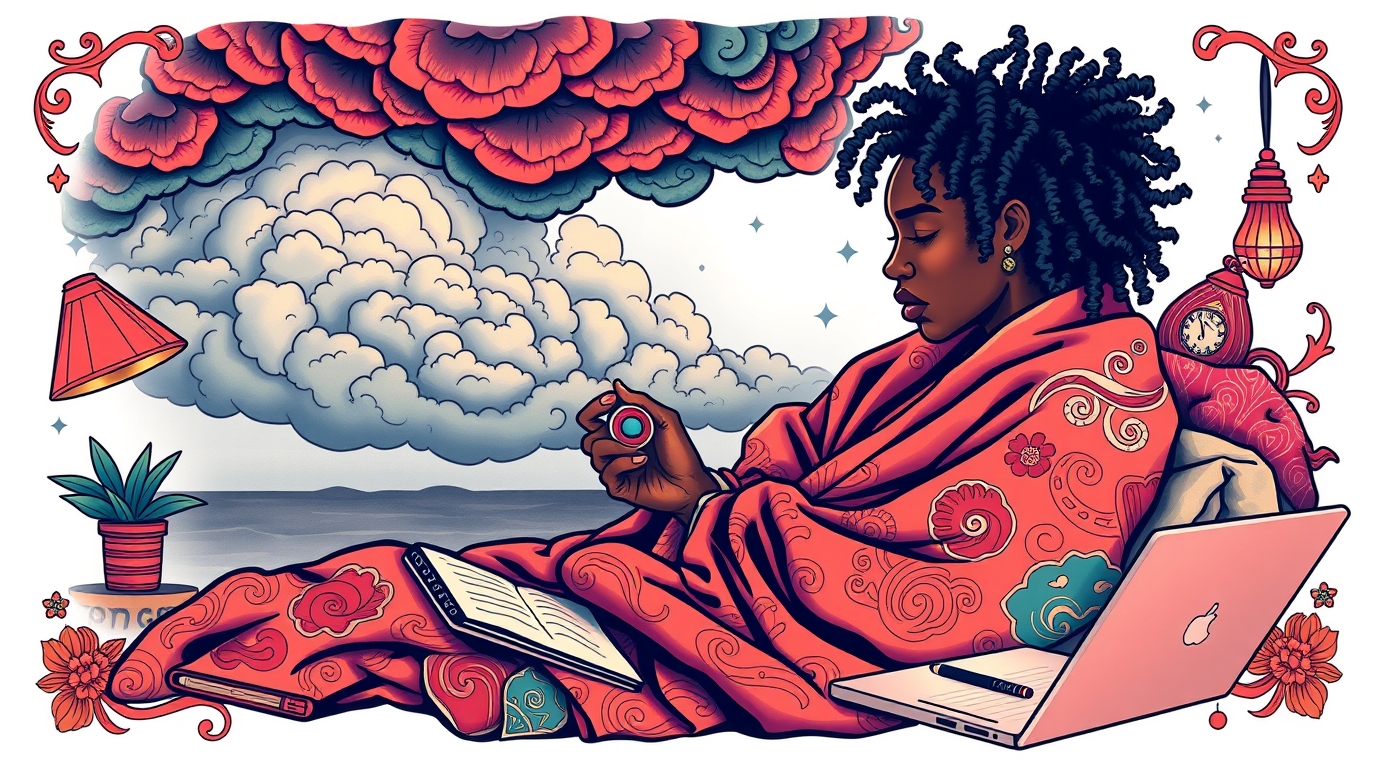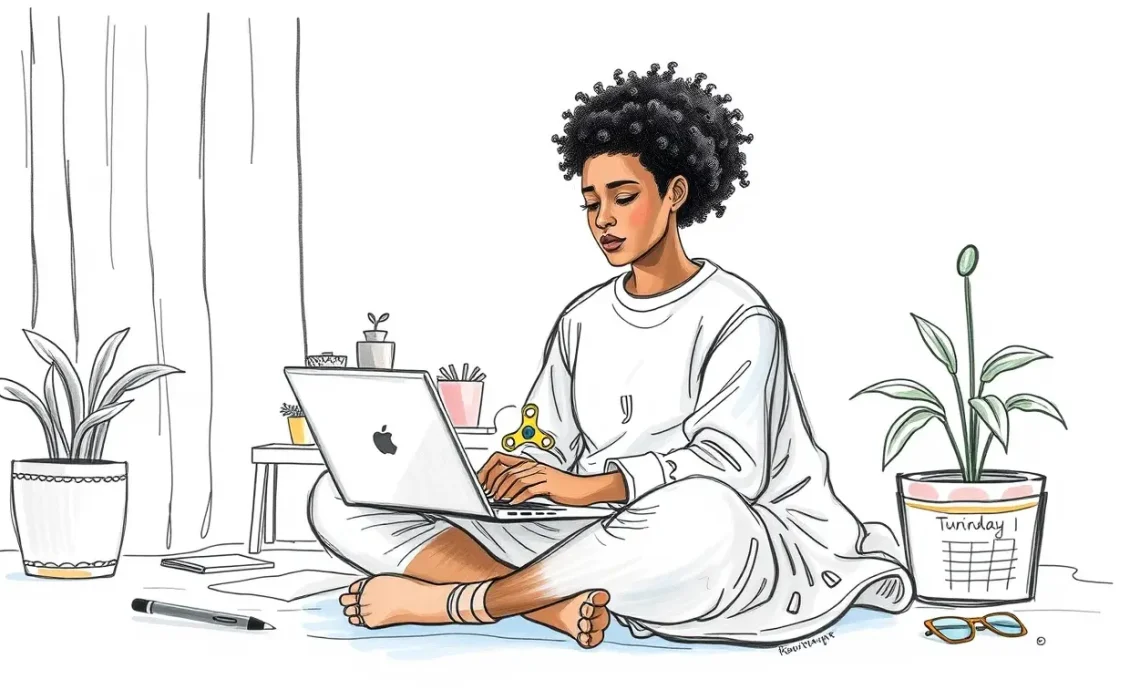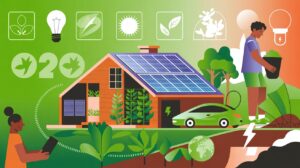Self-care is vital for everyone, but neurodivergent individuals—such as those with autism, ADHD, dyslexia, or other neurological differences—often require personalized approaches. Traditional self-care methods may not account for sensory sensitivities, executive dysfunction, or social communication preferences. This article explores tailored strategies to empower neurodivergent individuals in crafting a self-care routine that honors their unique needs.
Table of Contents
Toggle1. Understanding Neurodivergence and Self-Care
Neurodivergence encompasses diverse brain wiring that affects perception, interaction, and processing. Recognizing that one-size-fits-all self-care doesn’t work is the first step. Tailored strategies prioritize individual comfort, reduce overwhelm, and leverage strengths.
2. Create Sensory-Friendly Environments
Many neurodivergent individuals experience sensory sensitivities. Consider:
- Calming Spaces: Designate a low-stimulation area with soft lighting, cozy textures, or noise-canceling headphones.
- Stimming Tools: Use fidget spinners, weighted blankets, or chewable jewelry to self-regulate.
- Adapt Clothing: Opt for sensory-friendly fabrics and adjustable attire to minimize discomfort.
3. Build Flexible Routines
Structure reduces anxiety, but rigidity can cause stress. Tips:
- Visual Schedules: Use apps like Tiimo or physical planners to outline daily tasks.
- Time Blocking: Allocate periods for work, rest, and special interests, allowing flexibility.
- Break Tasks Down: Combat executive dysfunction by dividing tasks into smaller steps using tools like Goblin.Tools.
4. Manage Energy with Spoon Theory
The “spoon theory” metaphor helps visualize energy allocation:
- Prioritize Activities: Focus on essential tasks and delegate or postpone others.
- Schedule Downtime: Recharge with solo activities like reading or nature walks.
- Advocate for Rest: Communicate needs to others without guilt.
5. Leverage Special Interests
Passions can be therapeutic:
- Creative Outlets: Channel interests into art, coding, or writing.
- Social Connection: Join online communities or clubs centered on shared hobbies.
- Motivation Boost: Use interests as rewards for completing challenging tasks.
6. Set Communication Boundaries
Protect energy by:
- Assertive Communication: Practice scripts like, “I need quiet time now.”
- Digital Limits: Mute notifications or use “Do Not Disturb” modes.
- Say No Gracefully: Prioritize commitments without overexplaining.
7. Adapt Mindfulness Practices
Mindfulness doesn’t require stillness:
- Movement-Based Meditation: Try yoga, walking, or rhythmic activities like knitting.
- Grounding Techniques: Use tactile objects (e.g., stress balls) or focus on sensory details (e.g., textures, smells).
- Interoception Check-Ins: Use apps to track hunger, thirst, or fatigue cues.
8. Seek Neurodiversity-Affirming Support
Professional guidance can enhance self-care:
- Therapists: Look for providers experienced in ADHD coaching or autism-specific strategies.
- Occupational Therapy: Address sensory integration or daily living skills.
- Peer Support: Join groups like NeuroClastic or attend local meetups.
9. Celebrate Small Wins
Practice self-compassion:
- Reframe “Productivity”: Value rest and joy as achievements.
- Journal Progress: Note daily successes, even minor ones.
- Embrace Authenticity: Reject societal norms that don’t serve you.

10. Connect with Community
Find belonging in neurodivergent spaces:
- Online Platforms: Follow advocates on TikTok or Instagram (@neurowonderful, @the.autisticats).
- Advocacy Groups: Participate in ASAN (Autistic Self Advocacy Network) or ADHD Together.
- Mentorship: Learn from others who share similar experiences.
Conclusion
Self-care for neurodivergent individuals is about customization, not conformity. Experiment with strategies, embrace flexibility, and remember that self-compassion is the cornerstone of well-being. By honoring your unique needs and connecting with a supportive community, you can build a sustainable, empowering self-care practice.
Final Note: Your journey is valid. Celebrate what works, discard what doesn’t, and prioritize joy in the process. 🌟
External Resources for Further Support
To deepen your self-care practice, here are vetted tools, communities, and organizations tailored to neurodivergent needs:
1. Advocacy & Education
- Autistic Self Advocacy Network (ASAN): A nonprofit run by and for autistic people, offering resources on rights, policy, and community.
autisticadvocacy.org - ADHD Foundation (UK): Provides strategies for ADHD management and workplace support.
adhdfoundation.org.uk - NeuroClastic: A nonprofit with articles by autistic writers on topics like masking, burnout, and sensory needs.
neuroclastic.com
2. Apps & Tools
- Tiimo: Visual planning app designed for neurodivergent brains.
tiimoapp.com - Goblin.Tools: Breaks down tasks into manageable steps (try the “Magic ToDo” feature).
goblin.tools - Finch: A self-care app with gentle reminders for routines and mood tracking.
finchcare.com
3. Sensory-Friendly Products
- Stimtastic: Affordable sensory toys and tools created by autistic individuals.
stimtastic.co - National Autism Resources: Weighted blankets, chewable jewelry, and sensory kits.
nationalautismresources.com
4. Mindfulness & Mental Health
- Headspace (Neurodiversity Collection): Guided meditations adaptable for sensory needs.
headspace.com - Mindful Neurodivergent Peer Support: Free virtual peer groups for mindfulness practice.
mindfuldivergence.com
5. Community & Connection
- Reddit’s r/neurodiversity: A supportive forum for sharing experiences and advice.
reddit.com/r/neurodiversity - The Neurodivergent Woman Podcast: Conversations on ADHD, autism, and thriving as neurodivergent adults.
theneurodivergentwoman.com - Wrong Planet: An online community for autistic individuals.
wrongplanet.net
6. Books by Neurodivergent Authors
- “Unmasking Autism” by Dr. Devon Price: Explores unmasking and self-acceptance.
Book Link - “Dirty Laundry” by Richard Pink & Roxenne Emery: ADHD-friendly strategies for relationships and daily life.
Book Link
7. Professional Support Directories
- Therapist Neurodiversity Collective: Find neurodiversity-affirming therapists.
therapistndc.org - Neurodiversity Therapy: Directory of therapists specializing in autism, ADHD, and trauma.
neurodiversitytherapy.com
Final Note: These resources are starting points—explore what resonates with you, and don’t hesitate to adapt them to your unique needs. Prioritize joy, rest, and connection in your self-care journey. 🌱
Always verify the credibility of resources and consult trusted professionals when needed.






